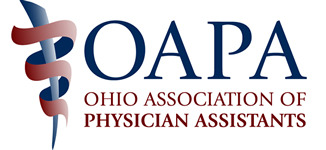Students and Early Career FAQs
How do I become a PA?
The PA profession is stable, recession-resistant, cannot be outsourced to another country, and can be financially rewarding. It offers employment in family medicine, emergency medicine, and a wide variety of specialties. It is also one of the fastest-growing professions in the country with many jobs available. The American Academy of Physician Assistants (AAPA) provides an excellent Introduction to the PA Profession article (Found here: https://www.aapa.org/about/
How would I prepare to become a PA?
It is recommended that you try to exceed the minimum requirements for application. This allows prospective students to submit a competitive application. In Ohio a minimum of a 3.0 GPA and a Bachelor's Degree are required.
For those programs that require it, what are some examples of “health care experience”?
This may vary slightly depending on the program you are considering. Hands-on patient care/interaction experience and/or demonstrated healthcare-related volunteer work are commonly accepted; nursing, phlebotomy, physical therapist assistants, and many other roles are used. Please contact the program you are interested in to confirm your experience applies!
Each program has a specific deadline that can be found on our "Ohio PA Programs" tab. Most universities ask applicants to use the CASPA centralized application and may ask for additional applications to be completed after that.
What about letters of reference?
Select a reference that can outline your involvement in patient care and/or your volunteer activities. The letters of reference are an important component that the programs will use to evaluate your background and experience.
What can I expect once accepted into the PA program?
The length of the program is 24-30 months and the curriculum is rigorous. Employment is not recommended and the programs do not offer part-time, evening or weekend classes.
Expect to take courses such as, but not limited to, anatomy, physiology, clinical medicine, pharmacology, medical ethics, patient evaluation and practice rotations.
What about letters of reference?
Select a reference that can outline your involvement in patient care and/or your volunteer activities. The letters of reference are an important component that the programs will use to evaluate your background and experience.
What can I expect once accepted into the PA program?
The length of the program is 24-30 months and the curriculum is rigorous. Employment is not recommended and the programs do not offer part-time, evening or weekend classes.
Expect to take courses such as, but not limited to, anatomy, physiology, clinical medicine, pharmacology, medical ethics, patient evaluation and practice rotations.
Any tips for studying during didactic year?
- Find your study style and stick to it. It doesn’t matter how your classmates study, do what works best for you.
- Please see the "Tips and Tricks for Ohio PA Students" entry for real advice from students in both phases of PA school!
Does OAPA offer any student scholarships?
- The OAPA offers several scholarships each year to students in Ohio
- Please see our "Student Scholarships" page for more information and applications
How can I shadow a PA?
- Due to restrictions set during COVID, shadowing a PA may be difficult in your area. Ask your local network for opportunities!
- OAPA is actively working to re-establish a mentor and shadowing program for all students in Ohio
What are some good study resources should I use?
- The amount of resources online are endless!
- Ask students more advanced in the program, faculty, as well as practicing PA-Cs
- Pick a few resources and stick with them. Too many resources can be overwhelming!
- Visit our "Links/Resources" tab for some great places to start
Our Student Resource page has an extensive list of references and resources to help you survive PA school. If you still can't find what you need or don't see your question below email us at OAPA@OhioPA.com.

